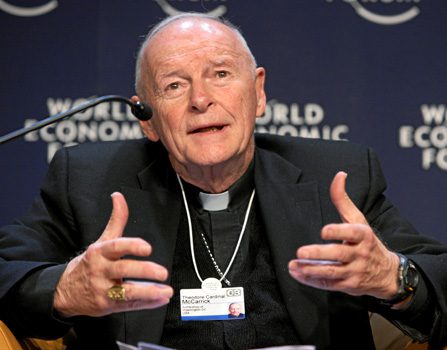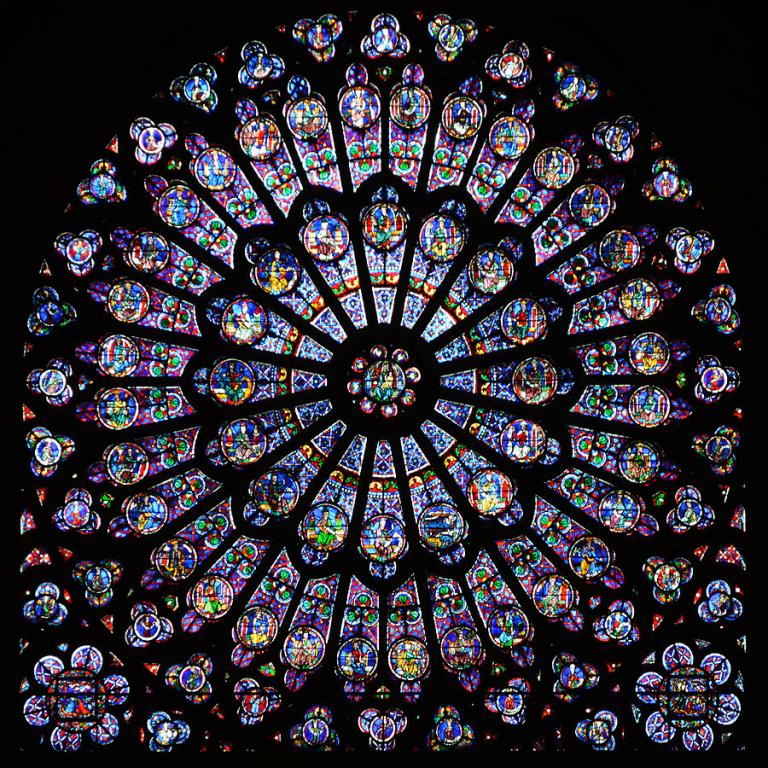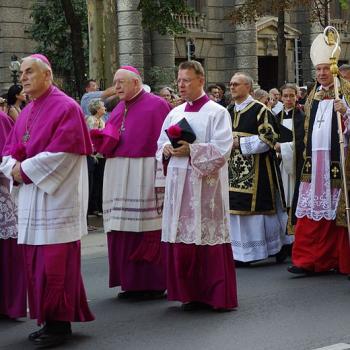
Not long ago, Theodore Cardinal McCarrick, the former archbishop of Washington, D.C., was accused of child sexual abuse, and gave one of those sorts of apology/non-apologies: “I’m sorry, and, also, I didn’t do anything.” As skeevy as I thought the pseudo-apology was, I hesitated to jump into the reports headlong, recalling that Chicago’s Cardinal Bernardin was accused of abuse, and his accuser eventually retracted (this being at a time when “recovered memories” were still considered credible) and there was a very public retraction/reconciliation.
But now further reports are coming out that are very damning — in particular, an article by Rod Dreher at The American Conservative which details very disturbing, very credible accusations. In prior articles, he’s written that he’s followed the issue for many years, and knew that McCarrick was an abuser but could never find anyone who was willing to state this publically, and Dreher wasn’t willing to publish anonymous accusations. Dreher and others are writing that the rot goes very deep, that the abuse was not something that happened in secret, but was, instead, an open secret, with McCarrick’s abuse being well-known — but no one was willing to risk their clerical career, or even just their social standing, by exposing him and holding him to account.
Dreher also links to a National Review article by Michael Brendan Dougherty that discusses the “biological solution”:
Roughly speaking, it meant that priests attached to the reforming visions and the theological fads of mid 20th century would, by the simple process of aging and dying, be replaced by the younger, more tradition-minded, and less morally lax generation. The heavy implication was that the problem of moral cronyism in the Church, in which sexually compromised priests cover and cover-up for one another, would mostly solve itself over time.
Dougherty then goes on to say that the “biological solution” is really no solution at all. Tradition-minded young Catholics hoping it goes away are being thwarted by Francis’s appointment of liberal bishops, potentially a new generation of McCarricks, and in any case, are failing to recognize the damage that these bishops have caused in the meantime.
Dreher in a separate article links to a Ross Douthat column which carries another demand that the bishops be held to account for any degree whatsoever in which they knew, or heard rumors of abuse or misconduct and ignored it. Here’s Douthat, as quoted by Dreher:
In other words, two decades after McCarrick should have been removed from his offices, defrocked and handed over to the civil authorities, he was instead wielding remarkable influence in the church … right up until the moment when a lifetime’s worth of crimes were finally dragged into the light.
I think this long and sickening narrative should clarify why the McCarrick case, though “only” about one abuser, merits an expansive and public accounting of the facts. Over the course of multiple decades, across a period in which not just crimes but cover-ups devastated the moral credibility of the church’s hierarchy, many important figures in Rome and the United States must have known that a man who embodied the official response to the scandal was as guilty as any of the priests whose conduct he pretended to deplore. . . .
But bishops, Douthat says, have essentially become irrelevant, making this reckoning less likely:
The lukewarm in their flock simply ignore them; the zealous build new institutions specifically designed to evade their oversight. Their political interventions go unheeded by Catholic Democrats and Catholic Republicans alike. In far too many cases an office that once bestrode entire cities now belongs to invisible company men, embarrassed phantoms materializing via videotape for the annual appeal.
Is Cardinal Cupich irrelevant? Certainly, as far as the Catholic Church is concerned, he is exactly this administrator speaking on CD (not even videotape!) for the appeal; what Cupich cares about far more deeply are social issues such as amnesty and aid for immigrants and solutions to urban gun violence.
Douthat calls for an impartial inquest into “who knew what, when,” though with considerable skepticism that such a thing might take place. McCarrick was elevated under John Paul II despite accusations, and Francis has held him in high regard:
The choice, says Douthat, lies now with Pope Francis — who, we have been told, in the past considered McCarrick a “hero,” and has certainly given him his way regarding the appointment of new cardinals. Three US cardinals — Tobin, Cupich, and Farrell — owe their appointments in part to McCarrick’s influence.
It strikes me that my reaction is different this time around than in the prior instances of abuse cases. I think I felt more defensiveness then than now: “it was only a small minority of priests. There are abusers from all walks of life, but the Catholic Church’s prominence makes these cases more visible. It won’t happen any longer because everyone knows to listen to children. Let’s just get this over with and hope people overcome their anger and come back to church.” Etc.
But coming on the heels of Douthat’s book To Change The Church, and with the examples of Francis and Cupich and the German cardinals, I think I’ve been much more primed to think of this as an era in which we see the fallibility of the church’s leaders exposed, and in which we have to think of the future of the church in a long-term, Benedict-Option sort of manner (even though I’m too introverted and not spiritual enough to find my way into such a community). And if some members of the church hierarchy are exposed as having feet of clay, so be it — but at the same time, I say this knowing that I’m still harboring a hope that the “bad” liberal bishops will be exposed, and the “good” traditional bishops will be proven to be blameless and out-of-the-loop.
Image: https://commons.wikimedia.org/wiki/File:Theodore_Cardinal_McCarrick.jpg; By Copyright World Economic Forum (www.weforum.org)www.swiss-image.ch/Photo by Andy Mettler [CC BY-SA 2.0 (https://creativecommons.org/licenses/by-sa/2.0)], via Wikimedia Commons












